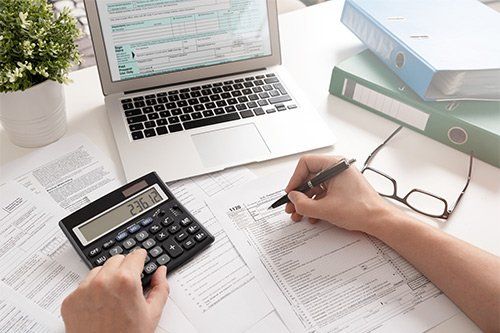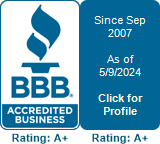Proper Record-Keeping for Income Taxes
- By Admin
- •
- 24 Jun, 2019
- •

Now that your income taxes have been filed, you need to know how to keep good records in case you need to refer to them in the future. In addition to the possibility of an IRS examination, tax records can also affect future tax years' calculations and even be required to show income or document ownership.
So, to keep sufficient tax records — but not so much as to open yourself to additional liability — what should you do?
Know the Statute of Limitations
The IRS has a set period of time in which to assess tax (the statute of limitations). Generally, this is three years after the due date (or date the return was filed) as well as two years after you paid the tax. When this statute of limitations expires, you generally can safely destroy records that are now out of date.
The statute of limitations can be longer than three years, though, for special circumstances. If you claim worthless securities for a loss, you need to keep records for seven years. If you significantly under-reported income, keep records for six years. And records of properties claimed on your taxes should be kept for as long as you own the asset.
Know How to Store Items
Of course, the storage of proper tax records can add up to a lot of extra paperwork. If you do keep paper records, use a locked file cabinet that's fireproof and within your control. Maintain records away from potentially damaging elements like moisture, pests, and pets.
Fortunately, the IRS allows taxpayers to keep records digitally as long as they meet the IRS's standards. This will save you a lot of space and ensure that you don't lose your only copy of a document. However, if you opt for digital storage, make sure the storage location is secure since it will hold plenty of personal information.
Most taxpayers benefit from a two-part system that duplicates hard copy files with digital versions. When the statute of limitations comes, be sure to completely destroy both versions. Failure to destroy records in a timely manner may lead to unnecessary liability if the IRS does audit your files.
Know What to Keep
So, once you know how long to keep tax records, what should you keep in that file? Of course, you should begin with full copies of your state and federal tax returns and all accompanying schedules. If you used a tax preparer, maintain record of their contact information in case you need to request any information that they keep.
With that, include documentation showing how you reached expenses or deductions — including child care expenses, tuition information, and records of income. Did you claim business travel or entertainment?
Maintain receipts and statements that show the date, location, attendees, and business purpose. Similarly, charitable deduction records must show what was contributed, when, and how you valued it.
Special situations call for maintenance of more detailed tax records. If you depreciated any business property, keep a file that shows what you paid for the asset and any improvements you made. This is known as the asset's basis, and it’s the foundation of depreciation deductions. If you had employees, too, you'll also need more detailed records of any employment taxes paid.
Not sure what is the statute of limitations for any particular tax item you have? Don't know if your storage method complies with the IRS? Or do you need help determining your state's record-keeping requirements? Contact a qualified CPA or Enrolled Agent for more information. At Williams & Associates Tax Services, our knowledgeable staff can help. Call today to make an appointment.










